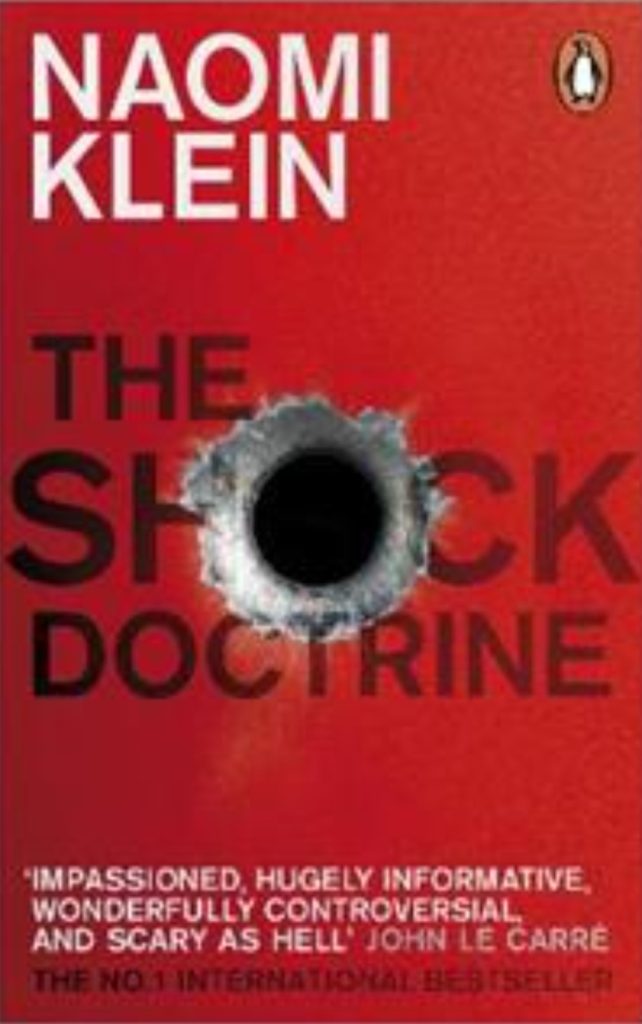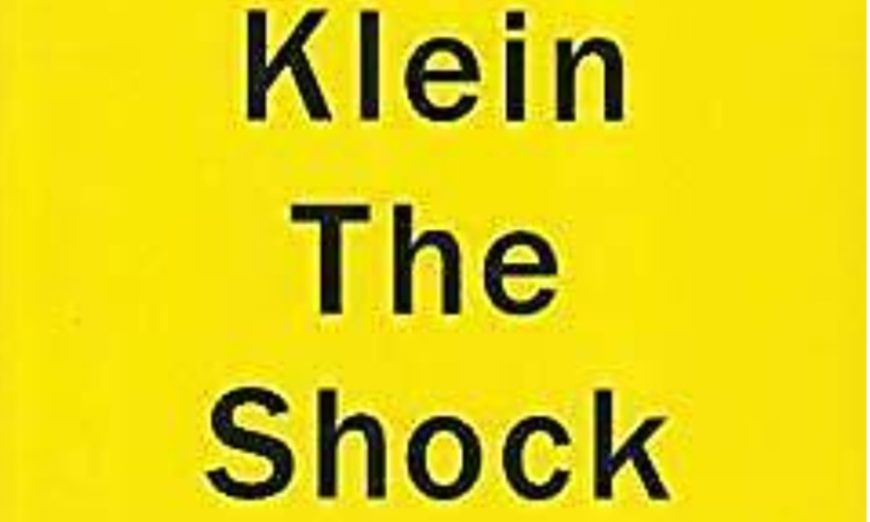A few days ago, I visited a friend in the economics fraternity to exchange notes on the state of the economy in our country, Tanzania. Our object of aggression in our discussion was to re-examine the book written by the Canadian thinker Naomi Klein in 2007 titled The Shock Doctrine; The Rise of Disaster Capitalism
Klein posits the idea that neoliberal free market policies as advanced by Milton Friedman; are at the centre stage in the developed world because of a deliberate strategy of SHOCK THERAPY. Her central thesis is that national crises are always exploited to push for controversial and doubtful policies and thereby leaving the citizens in economic shambles that they cannot even organize to respond with necessity and efficiency.
Over the past one month, we have been toying with the idea in our economy. The shock therapy idea in economic management.
My friend’s understanding of Naomi’s argument is that; the shock therapy in strict economic sense can only be a function of a state against another state. And his position is that, it is far fetched to apply the idea in our state of affairs. On the other hand, my understanding of the concept at least as per Naomi’s book; is that, the neoliberal policies if not checked they manifest themselves in internal economic and public policies in an economy to set grounds for a shock therapy strategy and at this stage as a political playbook. As always, we all agreed to have further discussions on the same.
Yesterday, when preparing notes for his students in International Finance, he bumped into a controversial idea that made him doubt his position regarding the shock therapy. He immediately gave me a call to ask if I could write an economic outlook for 2022 in relation to this subject matter. I promised him to write one, and here is what I think.
Whenever I am asked to predict the economic outlook, my response is always clear. Economics is not a subject of prophesy, as well as it is not the subject of predicting the future.
Economists do what is called the Lucas Critique named after economist Robert Lucas. This is when economists do forecast creating feedback that cancels their effect.
Nassim Taleb whom I consider to be the best statistician in the world today, found that there is no convincing evidence that economists as a community have ability to predict outlier events since history is dominated by probable events. His position was after analyzing a litany of working papers and articles in economics. Though his book: “The Black Swan; The Impact of the Highly Improbable” in which he unleashes this uncomfortable truth amongst economics scholars was fiercely attacked in an “intellectual diarrhea” style of a fight: he has managed to shape how modern economists use data to analyse the future(the emphasis is mine). As a result, most serious economists do no longer apply data as Physics scholars do. They now ask a question; WHERE ARE THE PEOPLE?
Economists now understand that; even if we have some ability to predict, our predictions are at best just slightly better than random ones. Taleb concludes that economics is the most insular subject; one that quotes least from outside subject perhaps making it with highest number of philistine scholars who are hedgehogs rather than foxes with open mind to predict outliers.
In ancient Rome, thinkers did not judge their political system by just asking how functional it was but by finding out what needed to be fixed in the system. Economists today do exact the same thing. They do analyse what is not working in the economy to advise the applicable policy remedies that are above the needed effect to make the economic and political system function.
So, it is obvious that economics is not about predicting the future, like predicting the future economic turmoil or who will win the next election, as it is always preached.
We can canvass the year 2021 where the macroeconomic fundamentals pointed towards the Tanzania economy sliding towards tough economic hardships and so was the case. But no economist saw it coming that 2021 would be the year in which pro-private sector policies and externalization of the economy would be back at the driving chair.
From the economists’ desk, we only gave the policy recommendation that to turbo-charge the economy; the private sector should be given oxygen because the position to sideline it was based on econolistic approach. An approached in which economic thinkers are more tilted in ideologies than economics that works for everyone.
Post-pro private sector policy there is slow building up of the economy but the mass prosperity question is still in uncharted waters.
Speaking of the trust, it is not an outlook any economist predicted despite recording for the repositioning of the policy because the craft is not about betting on the right horse.

And in 2022?
I have declined to be predictive about the country’s economic outlook. But I will briefly point out what will make our economy remain in the ventilator followed by why government doesn’t look clinical in dealing with those problems.
The salient economic issues are evident; high tax regime, high debt servicing burden, inflation, increased cost of doing business, inequality, unfavourable regulatory environment and politics of hate
These issues are the necessary conditions to have the actual impact on the whole economy and thereby exacerbating poverty levels. The most affected areas are likely to be depicted in what we call economic fundamentals
In economic nomenclature, there are four economic fundamentals namely; (I) interest rates (ii)trade balance (iii) inflation and (iv) Gross Domestic Product~GDP. These fundamentals are critical for people’s we’ll being because they define the actual store of real-time value of money but more importantly, they are a benchmark for people to engage in economic activity.
The first point in dealing with the public debt; is for government to significantly reduce the budget expenditure to ease the taxpayers from aggressive tax collection which a huge chunk of it goes to servicing loans, then renegotiate and re-schedule debt obligations, and this will give room for private sector investment growth and eventually making the economy back to its growth “glory”.
But growth is not enough, our economy has been growing without the main features of transformation. Can we make 2022 a year of commencing serious transformation agenda?
Some will ask; “you mean our economic policy drivers do not see the light if it is as simple as you put it?” My answer is responding Yes! Considering how it is done in medicine; it took so long to realize that when a patient shows up with a headache, it’s much better to give him aspirin or recommend a good night’s sleep than do brain surgery.
The difference to this position is that, the government is always actually increasing spending and continues piling up public debt while Tanzanians remain wallowing in abject poverty?
And that is my economic viewpoint for 2022.










